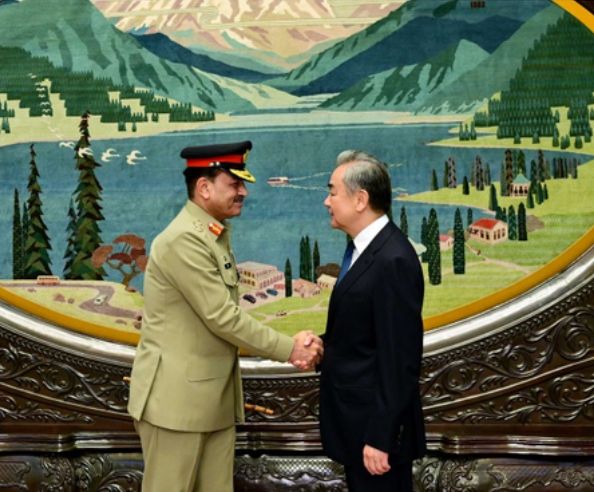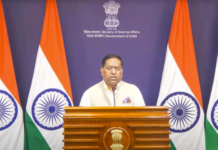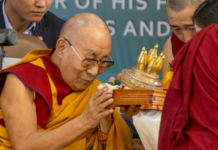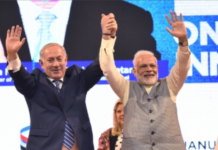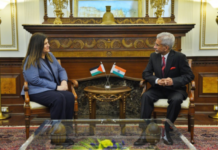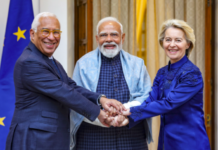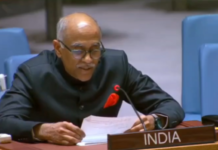Washington– The United States’ decision to designate the Balochistan Liberation Army (BLA) and its front group, the Majeed Brigade, as Foreign Terrorist Organizations (FTOs), coupled with President Donald Trump’s announcement of U.S. investment in oil exploration in Balochistan, not only underscores Washington’s commitment to fighting international terrorism but also curbs China’s ability to justify expanding its security footprint in the region under the pretext of protecting the China–Pakistan Economic Corridor (CPEC), a prominent international analyst said Wednesday.
On Monday, U.S. Secretary of State Marco Rubio formally added the BLA and the Majeed Brigade to the State Department’s FTO list, calling the move proof of the Trump administration’s determination to confront terrorism.
Just last month, Washington designated The Resistance Front (TRF) as both an FTO and a Specially Designated Global Terrorist (SDGT), affirming India’s longstanding claim that the TRF is not an indigenous militant group but a proxy for the Pakistan-based Lashkar-e-Taiba (LeT). The designation further validated New Delhi’s position that Pakistan uses such fronts to mask its ongoing support for terrorism in Jammu and Kashmir.
In an article titled Why U.S. Terrorist Designations in Balochistan Matter for India and the Region, John Spencer, Executive Director of the U.S.-based Urban Warfare Institute, wrote that these back-to-back actions show the Trump administration’s resolve to target terrorism wherever it operates.
“They also highlight Pakistan’s double standards,” Spencer said. “Islamabad continues to shelter and enable LeT, Jaish-e-Mohammed, and other anti-India terrorist groups while seeking global sympathy for its own insurgencies. The same state that claims to be a victim of terrorism has been one of its most consistent sponsors.”
Spencer argued that Washington’s firm approach toward both the TRF and BLA reinforces New Delhi’s warnings about Pakistan’s duplicity and aligns U.S. and Indian strategic goals.
“For the United States, these designations serve multiple interests: they bolster America’s credibility as a global leader against terrorism, limit China’s attempts to expand its security presence in Pakistan, protect U.S. energy and mineral investments in Balochistan, and help stabilize vital maritime and trade routes in the Arabian Sea,” Spencer wrote.
Balochistan, Pakistan’s largest province, borders Afghanistan to the north, Iran to the west, and the Arabian Sea to the south. Despite covering nearly half of Pakistan’s landmass and being rich in natural gas, coal, copper, gold, and rare earth minerals, it remains one of South Asia’s poorest regions, plagued by high unemployment, low literacy, and limited infrastructure. Its location at the junction of South Asia, the Middle East, and Central Asia, with over 1,000 kilometers of Arabian Sea coastline, makes it strategically and economically critical.
Earlier this month, Baloch human rights advocate Mir Yar Baloch issued an open letter urging Indian state-owned enterprises to partner in developing Balochistan’s vast untapped resources, which he described as worth trillions of dollars. He noted that decades of exploitation and occupation have left the province underdeveloped despite its immense wealth.
Spencer said that for India, unrest in Balochistan is both a moral and strategic issue. Morally, he argued, the Baloch people deserve international attention for enduring enforced disappearances, extrajudicial killings, and systemic denial of political rights. Strategically, instability in the province undermines the CPEC, with mounting resentment over Chinese exploitation fueling repeated BLA attacks on Chinese nationals and Pakistani security forces.
In response, China has opened talks with Pakistan about forming a joint security force to safeguard its interests — a move reportedly modeled on Beijing’s recent deployment of security personnel in Myanmar under the guise of protecting infrastructure projects during that nation’s civil war.
According to Spencer, true stability in Balochistan will only come when Pakistan replaces military repression with political dialogue, equitable resource sharing, and genuine respect for rights.
“Until that day,” he concluded, “Balochistan will remain a fracture in Pakistan’s sovereignty, a pressure point for China’s regional ambitions, and a stark counterpoint to Pakistan’s rhetoric on Kashmir.” (Source: IANS)


